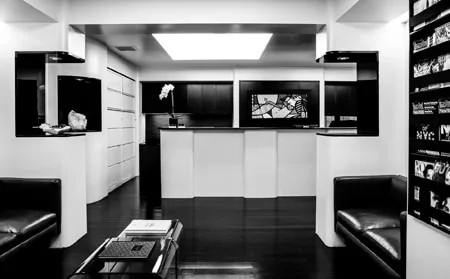 Google Glass was first introduced back in 2013 on a limited basis. This is a hands-free, computerized eyewear with the capability of presenting information to the wearer, and facilitates recording and sharing of video. It has received great appreciation from users as it is almost like a computer right before one’s eyes. Its features range from making phone calls, taking photos or video and checking emails to scanning the internet. Plastic surgery is one of the areas in which the device could possibly play a significant role making the whole process simpler with minimal human effort and improved convenience.
Google Glass was first introduced back in 2013 on a limited basis. This is a hands-free, computerized eyewear with the capability of presenting information to the wearer, and facilitates recording and sharing of video. It has received great appreciation from users as it is almost like a computer right before one’s eyes. Its features range from making phone calls, taking photos or video and checking emails to scanning the internet. Plastic surgery is one of the areas in which the device could possibly play a significant role making the whole process simpler with minimal human effort and improved convenience.
This web-connected, wearable computer could really change the way surgeons perform surgery. The streaming live video facilitates access to other specialists and their opinions and evaluations in real time. Such timely interventions at various phases of a treatment could ensure fewer delays, more positive results, and fewer risks. By being more responsive, the assistants in the operating room could contribute more. Hands-free photo/video-documentation, telephone calls for emergency assistance and internet search assistance for unusual or sudden happenings within the operating room are expected to be some good applications. Surgeons can have a look at the X-rays or MRI images at times of emergency even without moving out from the operating room. In a recent report, researchers revealed the wide ranging applications of the device in plastic surgery.
The first ever plastic surgery procedure performed using this eye-wearable device has demonstrated hopeful use of Google Glass in plastic surgery in the future for advanced applications. Researchers revealed the potential applications of the device from improved surgical training, medical documentation to patient safety. The leading surgeon who performed the surgery using the device said, “Google Glass is an exciting technology, attracting global interest from multiple industries, professions and individuals.”
He performed an eyelid surgery in combination with a facelift procedure. His experience not only pointed out the pluses but also some challenges demanding future refinement to excel more. Some of such challenges mentioned are:
- Limited resolution of the video camera
- Technical difficulties in streaming
- Need for the surgeon to keep the head in a fixed position
The surgeon was happy with the capability to demonstrate surgical procedures, live or recorded, which has noticeable applications for training in plastic surgery and other disciplines. Such recordings even have exceptional value for self-evaluation by the surgeon. This could help offer rapid access to medical documentation. Medical professionals may call up and analyze the required medical records, imaging studies, or checklists. The spread of infection likely with handling pens and paper, computers and other sources can be avoided.
The plastic surgery world hopes that Google Glass technology would enable surgeons to obtain remote consultations and provide “virtual assistance” during real procedures.
